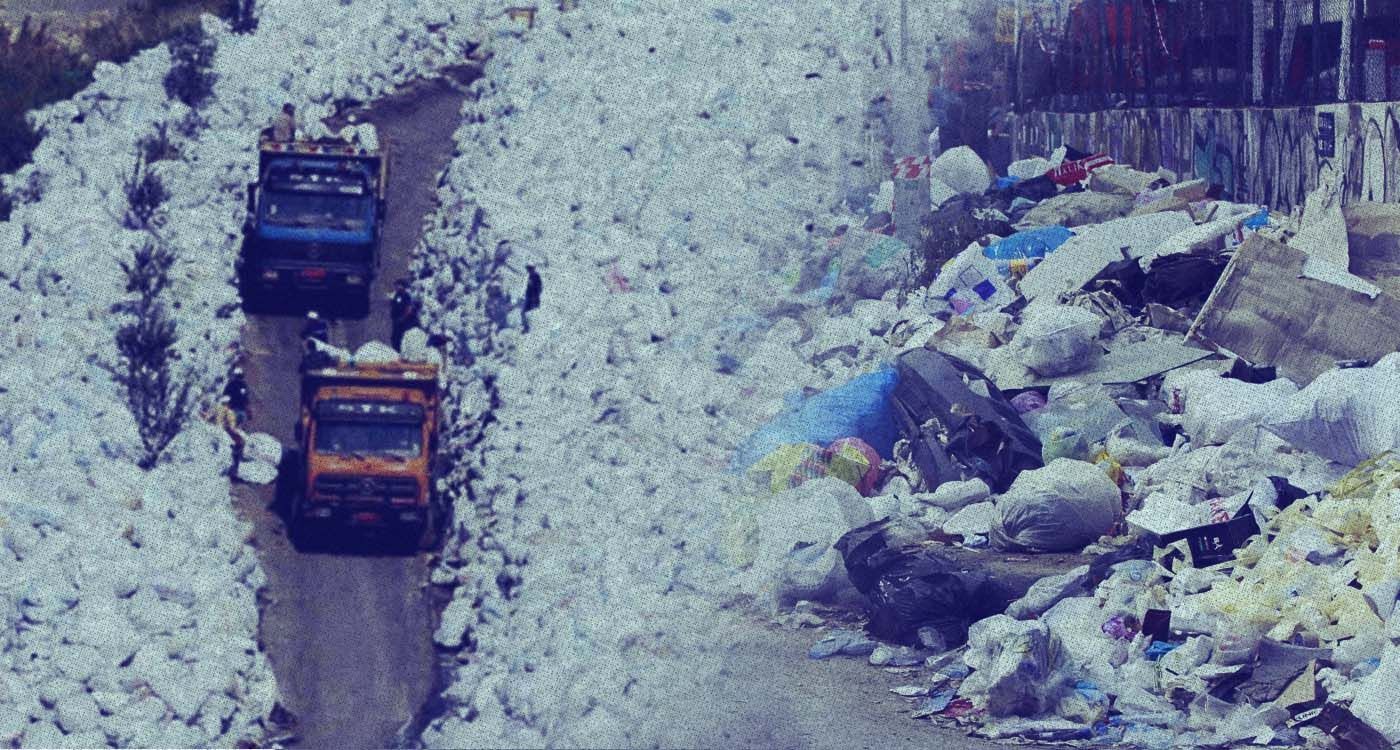
The shadow of Lebanon’s 2015 waste crisis loomed briefly over the country once again. On Tuesday morning, Ramco trucks halted waste collection across Mount Lebanon, Keserwan and Beirut after the Jdeideh landfill abruptly closed in the early hours. Intervention from the Council for Development and Reconstruction (CDR), which ordered the temporary reopening of the site, was needed for Ramco to resume operations. It is worth noting that the landfill had already reached full capacity.
While the incident was quickly addressed, it was enough to stir painful memories, the mountains of garbage piling up on sidewalks a stark reminder that Lebanon still struggles to manage its waste sustainably.
What exactly happened on Tuesday? What is the current state of waste management in Lebanon? What are the root causes of the problem? Where does legislation stand? And most importantly, what is the state’s plan to prevent a repeat of the 2015 crisis, especially with contracts of Ramco and CityBlu, the companies handling waste collection, set to expire at the end of 2026?
A Critical Situation on the Ground
Work teams describe an alarming reality. “We have repeatedly warned the authorities about the landfill reaching capacity. When a site closes, as happened with Jdeideh, even for just a few hours, the entire system comes to a halt. Trucks are stuck, waste piles up in the streets, and residents’ anger grows,” they tell This is Beirut.
These teams, responsible for waste collection, say they have maintained services “as much as possible,” yet the working environment is now “unmanageable.” Unstable sites, delayed payments and fragmented political decisions make effective operations nearly impossible. “No company can work miracles under these conditions,” emphasizes one source.
An official close to the matter describes a “system at the breaking point.” “The Jdeideh landfill is full,” he explains. “It can no longer absorb the volumes produced by the regions it serves. We are operating in emergency conditions with infrastructure that was never built to last.”
Efforts to expand the landfill have faced strong opposition since last Tuesday. Municipal council president Auguste Bakhos stresses, “We reject any expansion and are working to find sustainable solutions. The priority is creating a treatment center capable of handling 300 tons per day within a year and a half.” Lebanese Forces MP Razi al-Hage echoes this position, stating, “We refuse any extension of this landfill until a clear alternative is proposed. The state has offered no replacement plan. It simply prolongs the existing site, seemingly to buy time.”
Lebanon roughly produces 5,000 to 7,000 tons of waste each day. Of the country’s theoretical treatment capacity of 6,390 tons per day, only 440 tons – less than 8% – are actually processed. The remainder is either dumped in open dumpsites, burned or abandoned, contributing to severe environmental and public health risks. The number of illegal dumps exceeds 1,000, with some sites reaching heights of 3 to 36 meters, posing serious risks of fires, toxic emissions and groundwater contamination.
Failing Governance and Unclear Responsibilities
The main obstacle to effective waste management in Lebanon remains institutional. In 2018, Parliament passed the Solid Waste Management Law. Later, in 2025, the Parliamentary Finance and Budget Committee approved a law allowing municipalities to collect and process waste in exchange for a nominal fee. Yet these measures have largely remained on paper.
Speaking to This is Beirut, Hage highlights how unclear responsibilities exacerbate the problem. “The law assigns the file to the Minister of Environment, yet she claims she is not responsible. Municipalities, for their part, have still not received the legal green light to charge citizens a nominal fee for waste collection and treatment,” he explains.
He also points to the long delay in establishing the Household Waste Regulatory Authority, tasked with developing a comprehensive sector plan and overseeing solid waste management. “Until structural reform is implemented, Lebanon remains trapped in a cycle of repeated crises,” Hage warns.
The issue is particularly urgent as contracts with waste collection companies Ramco and CityBlu are set to expire at the end of 2026. Meanwhile, the Cabinet, scheduled to meet on Thursday afternoon, is expected to address the waste crisis, which has become one of the clearest symbols of Lebanon’s ongoing institutional collapse.




Comments